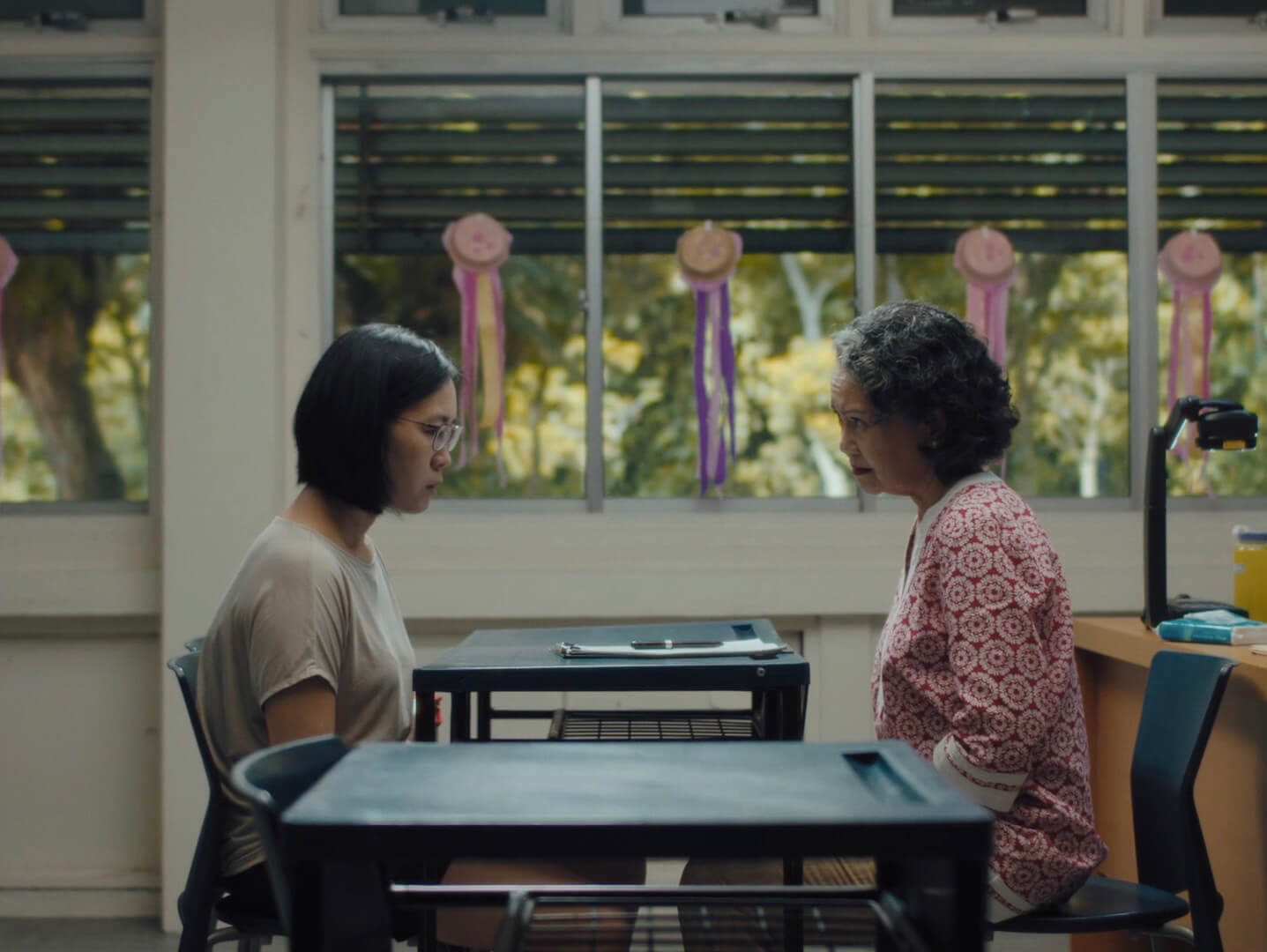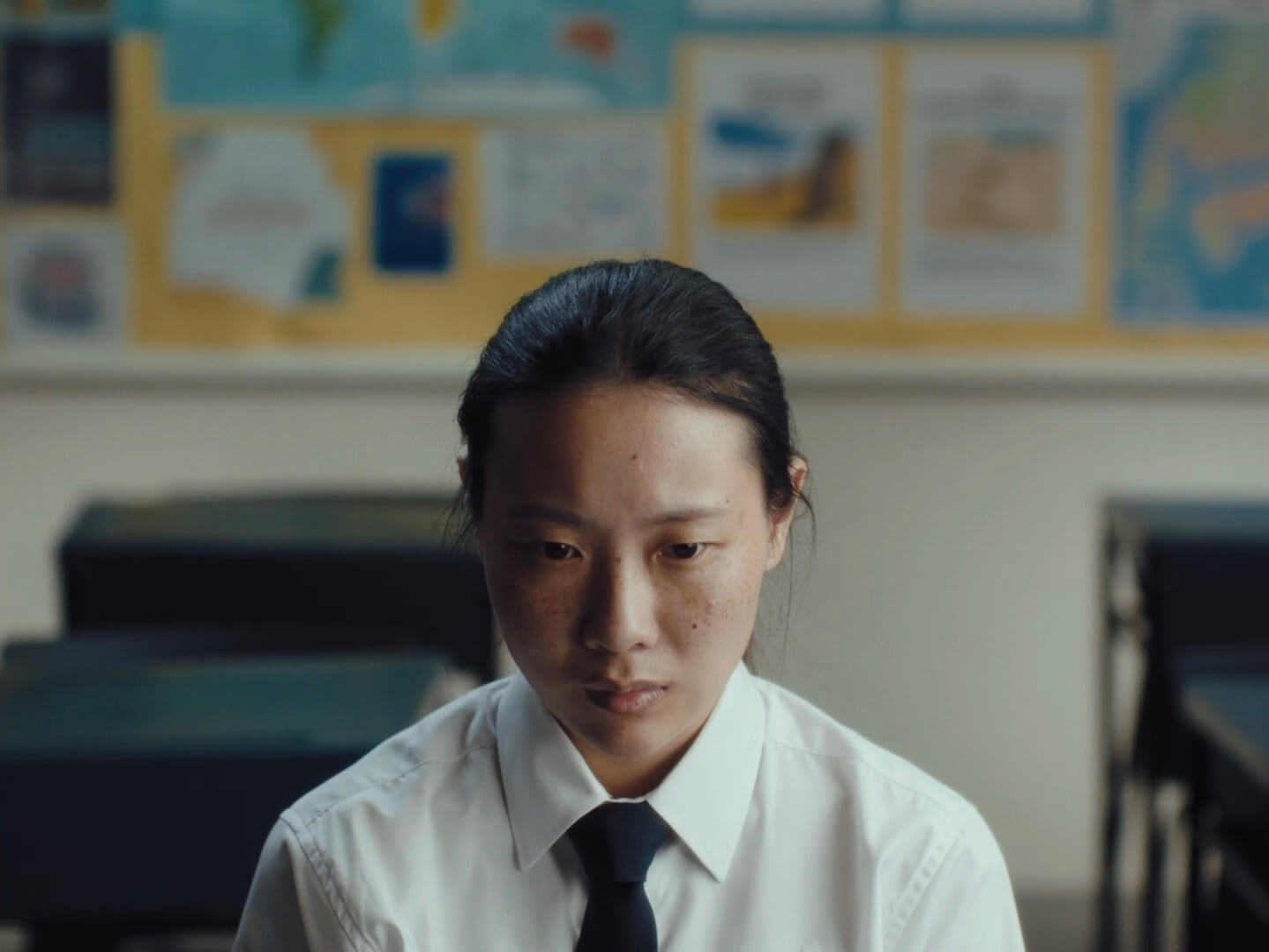Denise Khng’s Motherland is a tense drama about a parent-teacher meeting, while the child both occupies the periphery and is relegated to the sidelines. The inherent power structures inform the thematic exploration of truth and illusions within the intermingling dynamics of parent-child-teacher-school.
For a large part of the 17-minute film, Sarah (Lim Shi-An) is left to sit outside a door. Inside, her mother (Karen Tan Bee Lin) and her teacher, Mrs Reema (Nora Samosir) discuss her behaviour at home and performance at school. This is the (obvious) system; there is another student (Jastine Sim) sitting outside the next door, just like Sarah. The commonsensical assumption might be that this is normal, and therefore justified. It is this assumption that the film seeks to question.

The narrative cuts back and forth between the scene inside and outside with a rhythm that showcases the power imbalance and tension. Inside, Sarah’s mother has initiated a long, agitated discussion of Sarah’s behaviour at home. It is an interesting account. From a distance, Sarah’s wrongdoings are generally within the realm of rudeness, however serious they might get. Yet, they look positively dangerous between her mother and Mrs Reema. The film creates a pulsating, oppressive mood that implicates the three characters through a litany of platitudes on motherhood.
Motherhood is the axis of Sarah’s mother’s complaints. The complaints that she brings in against Sarah all have to do with her being an unfilial daughter to an exhausted and overworked mother. To this, Mrs Reema replies with those aforementioned platitudes, interested in maintaining a polite degree of detachment while still appearing empathetic. But as the film correctly points out, it is enough to threaten the institution of obedience, euphemised as ‘’values’’. Mrs Reema sincerely admonishes Sarah.

The film keeps the question of Sarah’s character and the veracity of her mother’s claims ambiguous as long as the meeting lasts and to a certain extent, even after. The film’s intelligence is in teasing up that which is often brushed aside, by making the narrative be just short of—and yet always threaten to spill over to—dramatically (and conventionally) ghastly stuff. By setting it in Sarah’s school, the film effectively ups the ante and simultaneously enforces restraint. Sarah’s position and reputation as an upright student is threatened, but neither mother nor daughter can freely confront each other given the lack of privacy.
By skirting around conventional drama, Motherland circumnavigates cliches to reframe long-discussed issues. The climax brings answers, and once again, it is not quite a dramatic reveal of morbid secrets and thus all the more evocative. The power imbalance is brought to a head just as the film ends with a different confrontation, underscoring the powerlessness that creates ‘’troubled’’ teenagers in the first place.
Watch Motherland Short Film
Motherland: Weaponised Assumptions, and Those Who Use Them
-
Direction
-
Cinematography
-
Screenplay
-
Editing
-
Music
















